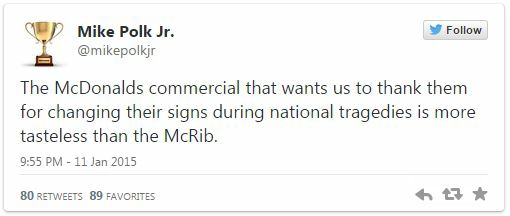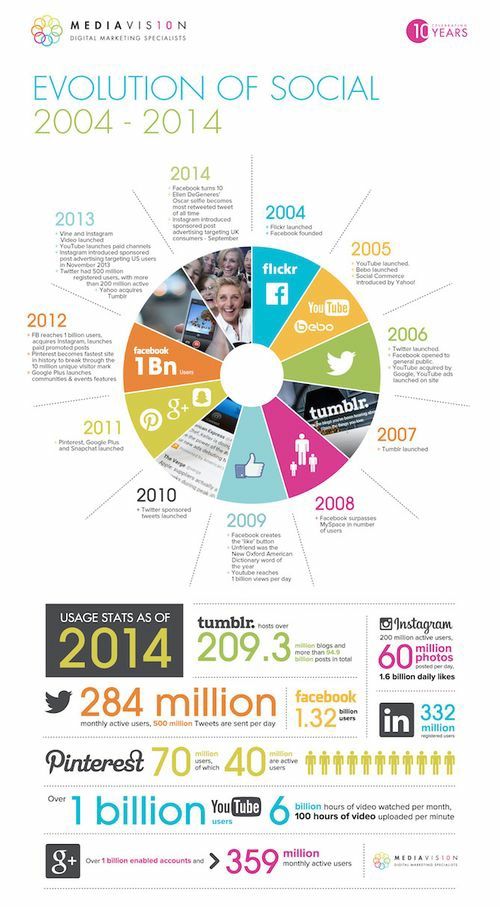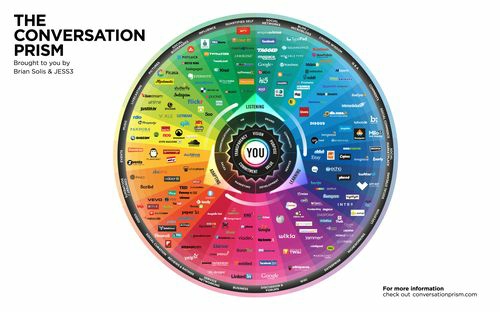McDonald's "Signs" Campaign
McDonald's is trying another tact for improving business. The latest marketing campaign, "Signs," shows the company standing by the community in times of tragedy.
McDonald's is certainly taking different approaches from simply promoting the taste of its food. The previous campaign focused on how food is made-an attempt at transparency, which worked for some but not everyone. The same could be said of this one.
Steve McKee, president of an ad agency in Albuquerque, complimented the approach: "I thought the ad was awesome. It's clear that all the billboards were real. It was demonstrating that McDonald's is Americana." Some say the ads distinguish McDonald's from Wendy's, Chipotle, and Burger King, which couldn't make such claims.
But others say the company is capitalizing on tragedy. And of course, any campaign is an opportunity for ridicule.
Discussion Starters:
- Describe the ad strategy. What objectives is McDonald's trying to achieve?
- What's your view of the campaign: tasteless, clever, or something else?
JetBlue Etiquette Videos
JetBlue created a series of videos on passenger etiquette, but not everyone thinks they're effective.
The videos may be entertaining and a good social media conversation starter, but what's the point? A Bloomberg article relays JetBlue's perspective:
"The JetBlue videos aren't intended to tell customers how to behave, Borromeo said in an interview. The exaggerated examples 'are meant to be fun' and to generate dialog with passengers about their experiences, she said.
"While the carrier would be 'thrilled' if the clips lead to positive behavior changes, 'we're also happy knowing that the video caused some travelers to smile and nod in understanding,' said Morgan Johnston, a spokesman for the carrier."
Critics say the videos should have a happy ending or at least offer suggestions for handling rude behavior on planes. Others say the clips only remind people how annoying it is to fly.
Discussion Starters:
- What do you see as the objectives for these videos? Do they achieve their purpose?
- How would you suggest passengers handle the situations in these two videos? Consider tactics discussed in Chapter 3 of the book.
Honda Responds to $70 Million Fine
 Honda has been fined a record $70 million for not reporting 1,729 injuries and deaths to The National Highway Traffic Safety Administration (NHTSA). The amount is twice what GM was fined when it failed to report 40 deaths because of ignition issues.
Honda has been fined a record $70 million for not reporting 1,729 injuries and deaths to The National Highway Traffic Safety Administration (NHTSA). The amount is twice what GM was fined when it failed to report 40 deaths because of ignition issues.
In a press statement, Honda blamed data entry and other errors for the reporting failure and promised to take "corrective measures":
Honda Resolves NHTSA Inquiry Regarding Early Warning Reporting
TORRANCE, Calif., Jan. 8, 2015 – American Honda Motor Co., Inc. ("Honda") has entered into an agreement with the National Highway Traffic Safety Administration (NHTSA) to resolve the government's inquiry into Honda's early warning reporting as required by the Transportation Recall Enhancement, Accountability and Documentation (TREAD) Act. As part of the Consent Order, Honda will pay a $70 million civil penalty and continue to implement a series of corrective measures among other requirements.
"We have resolved this matter and will move forward to build on the important actions Honda has already taken to address our past shortcomings in early warning reporting," said Rick Schostek, executive vice president, Honda North America, Inc. "We continue to fully cooperate with NHTSA to achieve greater transparency and to further enhance our reporting practices."
In order to ensure full compliance with its early warning reporting obligations, Honda has already begun taking steps to correct the errors responsible for the violations. The company is in the process of initiating new training regimens, changing internal reporting policy, making staffing and organizational changes, and enhancing oversight of its early warning reporting process.
The settlement agreement follows Honda's November 24, 2014 response to a Special Order issued by NHTSA in early November. That order was prompted by Honda's disclosure t NHTSA of preliminary findings from a third-party audit Honda commissioned in September 2014 in response to inadequately addressed discrepancies in the company's early warning reporting. In responding to the Special Order, as previously disclosed, Honda identified under-reporting of written claims or notices of injuries or deaths over the past decade due to errors related to data entry, computer coding, regulatory interpretation, and other errors in warranty and property damage claims reporting.
Discussion Starters:
- Assess Honda's statement. What works well to explain the company's position, and what could be improved?
- Do you buy Honda's explanation of the reporting failures?
FDA Issues Food-Labeling Regulations
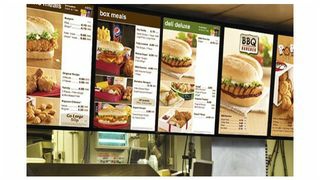 The Food and Drug Administration (FDA) has issued nutrition labeling regulations for restaurants and "similar retail food establishments." In an extremely long description, the FDA outlines requirements, including these provisions:
The Food and Drug Administration (FDA) has issued nutrition labeling regulations for restaurants and "similar retail food establishments." In an extremely long description, the FDA outlines requirements, including these provisions:
- Define terms, including terms that describe criteria for determining whether an establishment is subject to the rule;
- Require that calories for standard menu items be declared on menus and menu boards that list such foods for sale;
- Require that calories for standard menu items that are self-service or on display be declared on signs adjacent to such foods;
- Require that written nutrition information for standard menu items be available to consumers who ask to see it;
- Require, on menus and menu boards, a succinct statement concerning suggested daily caloric intake (succinct statement), designed to help the public understand the significance of the calorie declarations;
- Require, on menus and menu boards, a statement regarding the availability of the written nutrition information (statement of availability);
- Establish requirements for determination of nutrient content of standard menu items;
- Establish requirements for substantiation of nutrient content determined for standard menu items, including requirements for records that a covered establishment must make available to FDA within a reasonable period of time upon request; and
- Establish terms and conditions under which restaurants and similar retail food establishments not otherwise subject to the rule could elect to be subject to the requirements by registering with FDA.
The regulations have been drafted for years, and the new rules apply to restaurants with 20 or more locations serving similar food. One sticking point is about alcohol. Self-service drinks, such as bottled beer, as well as drinks on a standard menu all need to be labeled.
Discussion Starters:
- Read the FDA's regulations. How are they organized and written? What could be improved for restaurant owners and managers?
- What's your view of the new labeling regulations? What do you see as the goals, and will labels accomplish them?
Marriott's Response to Wi-Fi Criticism
 Marriott has been criticized for blocking guests' personal Wi-Fi connections, and the company petitioned to the Federal Communications Commission (FCC) for permission to use jammers. The request is still pending, but the FCC recently fined a Nashville Marriott for preventing guests' access to their own hotspots.
Marriott has been criticized for blocking guests' personal Wi-Fi connections, and the company petitioned to the Federal Communications Commission (FCC) for permission to use jammers. The request is still pending, but the FCC recently fined a Nashville Marriott for preventing guests' access to their own hotspots.
Critics say that Marriott wants to continue charging fees for Internet access while guests should be able to bring their own access. Conference guests, particularly, sometimes prefer their own hotspot to ensure a faster connection when multiple users are on simultaneously. But in a statement on its website, Marriott explains the company's position as a security issue rather than a way to control access:
12/30/2014
Marriott's Response to FCC Petition Filing
We understand there have been concerns regarding our position on the FCC petition filing, perhaps due to a lack of clarity about the issue. To set the record straight it has never been nor will it ever be Marriott's policy to limit our guests' ability to access the Internet by all available means, including through the use of personal Mi-Fi and/or Wi-Fi devices. As a matter of fact, we invite and encourage our guests to use these Internet connectivity devices in our hotels. To be clear, this matter does not involve in any way Wi-Fi access in hotel guestrooms or lobby spaces.
The question at hand is what measures a network operator can take to detect and contain rogue and imposter Wi-Fi hotspots used in our meeting and conference spaces that pose a security threat to meeting or conference attendees or cause interference to the conference guest wireless network.
In light of the increased use of wireless technology to launch cyber-attacks and purposefully disrupt hotel networks, Marriott along with the American Hotel & Lodging Association on behalf of the entire hotel industry is seeking clarity from the FCC regarding what lawful measures a network operator can take to prevent such attacks from occurring. We feel this is extremely important as we are increasingly being asked what measures we take to protect our conference and meeting guests and the conference groups that are using Wi-Fi technology in our hotels.
The FCC is accepting comments about the situation.
Discussion Starters:
- Marriott's statement has lots of qualifiers, such as, "To set the record straight," "As a matter of fact," and "To be clear." What do you make of these phrases?
- Should Marriott say more about the situation? The company denied comment for a Huffington Post article.
Study: Check Email Less Often
 A new study from the University of British Columbia's psychology department tells us to stop checking email so frequently. The study asked one group of subjects to turn off their email alerts and check email only three times a day for a week. Another group was told to check email as many times as they would like. Then, the groups switched for a second week.
A new study from the University of British Columbia's psychology department tells us to stop checking email so frequently. The study asked one group of subjects to turn off their email alerts and check email only three times a day for a week. Another group was told to check email as many times as they would like. Then, the groups switched for a second week.
Published in Computers in Human Behaviour, the study showed that checking email leads to feelings of stress and tension. Subjects answered the following questions:
- How often have you felt that you were unable to control the important things in your life?
- How often have you felt nervous and stressed?
- How often have you found that you could not cope with all the things that you had to do?
- How often have you been angered because of things that were outside of your control?
Discussion Starters:
- Do these results surprise you?
- How realistic is it to check email just two or three times a day at work?
- What could you do to limit the number of times you check email throughout the day?
Ogilvy Apologizes for Distasteful Ad
Ad agency Ogilvy & Mather has apologized for an offensive ad produced for Kurl-on, an Indian mattress company. What could go wrong when portraying a 14-year-old Taliban shooting victim in a cartoon?
The company wanted to show that heroic figures "bounce back," but the ad doesn't quite work. The New York Times describes Malala Yousafzai, featured in the promotion:
"At the age of 11, Malala Yousafzai took on the Taliban by giving voice to her dreams. As turbaned fighters swept through her town in northwestern Pakistan in 2009, the tiny schoolgirl spoke out about her passion for education - she wanted to become a doctor, she said - and became a symbol of defiance against Taliban subjugation."
Two other ads in the series aren't much better. Steve Jobs is shown pushed out a door, and Gandhi is thrown from a moving train.
Before this one hit paid media outlets, online news organizations flagged the image. Although Kurl-on hasn't responded to inquiries, Ogilvy issued this statement:
"We deeply regret this incident and want to apologize to Malala Yousafzai and her family. We are investigating how our standards were compromised in this case and will take whatever corrective action is necessary."
Discussion Starters:
- How do Kurl-on and Ogilvy share responsibility for the ad? How did this happen?
- The ad was created in Ogilvy's Indian office and produced in a Chilean studio. How, if at all, do these facts affect your thinking about the ad?
AirAsia CEO Apologizes for Lost Flight
In a news conference, CEO Tony Fernandes apologizes to the families of victims of the lost AirAsia flight. Fernandes responds to questions about the cause and compensation generally, but promises not to "run away from our obligations or hide behind any conventions. We will be there for the staff. . . [correction] for the families, even after all of this is over."
The Washington Post describes Fernandes as "a flamboyant Malaysian-born, British-educated former Warner Music executive, [who] had dreamed of operating his own budget airline since he was in school." He describes the lost flight as a "scar with me for the rest of my life."
The airline is suffering further embarrassment because of an in-flight magazine ad that bragged about the pilots' superior training: "well prepared to ensure [their] plane will never get lost." The article was published soon after the disappearance of Malaysia Airlines flight MH370.
Discussion Starters:
- Assess the news conference. How well did Fernandes handle the questions?
- At some point, he says that having families where they are trying to evacuate will "complicate" the process. What's your view of this statement?
Brands with Strange Foreign Names
 Chinese companies are capitalizing on the image of international sophistication by imitating American names, with mixed results. A New York Times article quotes a 20-year-old Chinese student: "Buy Chinese brands? Never. Foreign stuff is so much better."
Chinese companies are capitalizing on the image of international sophistication by imitating American names, with mixed results. A New York Times article quotes a 20-year-old Chinese student: "Buy Chinese brands? Never. Foreign stuff is so much better."
But the names are strange: Chrisden Deny, Prich, and Hotwind would make most Americans smile. According to a consultant in Shanghai, brand names, such as Adidios are Fuma are intentionally confusing.
Other names are just insulting. In a statement on its website, Colgate explains the history of Darlie toothpaste, a brand originally called Darkie and featuring an image of a minstrel in blackface:
"Almost 20 years ago, Colgate initiated action by Hawley & Hazel to eliminate the derogatory English name and packaging. The English brand name became "Darlie" and a stylized man in a top hat replaced the previous racial stereotype. These changes were implemented in 1990, with costs borne by Colgate. The Chinese language name, 'Hei ren,' was not changed. Hawley & Hazel's research shows that Chinese consumers perceive the 'Hei ren' toothpaste brand to be trustworthy, international and modern.
"Colgate is committed to demonstrating respect to all people; as a result of our investment in Hawley & Hazel, the totally unacceptable English language brand name was removed from the marketplace. We understand that there are different perspectives on the Chinese language brand, and we continue to consider these perspectives in our discussions with Hawley & Hazel."
I'm not sure how well Helen Keller glasses would sell in the United States.
Discussion Starters:
- Should Chinese and other country's brands make more of an effort to discover the cultural meaning of their names? Consider business, practical, and ethical implications.
- For the article, The New York Times asked Christian Dior for comment, but Dior didn't provide one. Should the company have made a statement and, if so, what would they say?
TripAdvisor Fined for Fake Reviews
 The Italian Competition Authority is fining TripAdvisor 500,000 euros (about $610,000) for failing to prevent fake reviews on its site. The regulator responded to complaints by consumers and hotel owners and accused TripAdvisor of misrepresenting the site as "authentic and genuine" by posting false "defamatory" reviews.
The Italian Competition Authority is fining TripAdvisor 500,000 euros (about $610,000) for failing to prevent fake reviews on its site. The regulator responded to complaints by consumers and hotel owners and accused TripAdvisor of misrepresenting the site as "authentic and genuine" by posting false "defamatory" reviews.
TripAdvisor disputed the ruling, saying that their fraud detectors and technology are "extremely effective in protecting consumers from the small minority of people who try to cheat our system," and "We firmly believe that TripAdvisor is a force for good - both for consumers and the hospitality industry."
The story reminds me of software developed at Cornell for spotting deceptive reviews. After it was trained, the software identified fake reviews 90% of the time compared to humans, who were successfully only 50% of the time.
Discussion Starters:
- What responsibility, if any, should TripAdvisor have for fake reviews on its site?
- Can you spot the fake review?
Columbia Journalism Investigates Rolling Stone UVA Article
 Rolling Stone is taking a new approach to verify its controversial article about rape at the University of Virginia. As the fraternity disputed the article, and some facts were questioned by The Washington Post, Rolling Stone admitted failings and apologized.
Rolling Stone is taking a new approach to verify its controversial article about rape at the University of Virginia. As the fraternity disputed the article, and some facts were questioned by The Washington Post, Rolling Stone admitted failings and apologized.
Now, Rolling Stone has asked the Columbia School of Journalism to conduct an independent review of the report. Two deans will lead the investigation and have been promised complete access to the magazine's staff and documentation.
PR News assessed the strategy:
"From a communications standpoint, Rolling Stone's decision is an interesting one. For the University of Virginia, this episode is still very much an open wound, and people in and around Charlottesville want answers to what (if anything) the article had right and what went wrong. An internal review, a common crisis management tactic, would seem less credible to those looking for real answers to what happened with the story.
"The decision to have Columbia handle the inquiry has people talking about the bungled report once more, and when the report comes out the magazine will face the specter of further criticism. While the independent review will not excuse the debacle entirely, by submitting itself to the scrutiny of a highly regarded journalism school, Rolling Stone is again acknowledging its fallibility and desire to get the story right, even at the expense of more bad press."
Discussion Starters:
- What's your view of Rolling Stone's approach? Do you agree with PR News?
- What are the risks of this strategy?
No More Voice Mail at Coca-Cola
 It's a sign of the times: Coca-Cola is no longer accepting voice mail messages. At the Atlanta headquarters, employees can shut off their voice mail system and never have to listen to another message. Only 6% opted in.
It's a sign of the times: Coca-Cola is no longer accepting voice mail messages. At the Atlanta headquarters, employees can shut off their voice mail system and never have to listen to another message. Only 6% opted in.
According to spokesperson Amanda Roesster, the move meets the goal of "changing the tools and methods in which we communicate as a company." In an internal message announcing the decision, CIO Ed Steinike wrote that eliminating voice mail will "simplify the way we work and increase productivity."
Bloomberg and MSN credit Millennials for the declining use of voice mail. To people under 30, they are a waste of time. Texting and Facebook messages are more efficient, and some Millennials admit not listening to voice messages at all. An NPR article quotes a trend expert:
"Everyone criticizes the Millennials for being the 'me' generation and being so entitled. I don't think they're so entitled. I think they're just incredibly pragmatic. So for them if a voice mail isn't practical - which most of the time it isn't - and there's a more practical way of delivering the same information, they're gonna go for that."
Discussion Starters:
- What's your view of voice mail messages? What are the advantages of voice messages that Coca-Cola may lose?
- How do you decide whether to send someone an email, text, Facebook message, or voice mail? See advice in Chapter 1 for ideas.
Putin and Others Laugh at Stroke Survivor
A reporter at Vladimir Putin's press conference slurred his question, and Putin joked and laughed, as did other reporters. The Russian leader didn't know that Vladimir Mamatov had survived several strokes.
The reporter asked why supermarketers don't stock kvas, a popular Russian alcoholic drink. In the middle of the reporter's question, Putin said, "I get the feeling you might have been at the kvas already."
People who knew Mamatov's medical history set the record straight.
I see no reports of Putin apologizing for the incident.
Discussion Starters:
- What's the lesson for others leading press conferences?
- Should Putin apologize or issue a statement? If so, what should he say?
Samsung Turns Off ChatOn
 Samsung's instant messaging app, ChatOn, will be discontinued starting February 1, 2015, and phasing out in the United States sometime after. The application has lost too much ground to What'sApp and Facebook Messenger.
Samsung's instant messaging app, ChatOn, will be discontinued starting February 1, 2015, and phasing out in the United States sometime after. The application has lost too much ground to What'sApp and Facebook Messenger.
The company imitated BlackBerry Messenger in 2011 after seeing the success of the service, but it didn't last. Based on communications about the app ("Available on multiple platforms!") and the graphic, above, I'm guessing the company had an image problem. Did people think that, like BlackBerry Messenger, ChatOn worked only between Samsung phones?
Facebook's approach was clever. When people downloaded the Facebook app, they had to download Messenger, which now has more than 500 million users.
Samsung issued this brief statement about the decision:
"On February 1, 2015, ChatON will be discontinued in all markets except the United States, as we strive to meet evolving consumer needs by focusing on our core services. We remain committed to offering services that cater to our consumers' lifestyles and add value to their everyday lives."
If Samsung issued a news release, I can't find it. The last press release on the company's website is dated September 4. I guess nothing has happened since.
Discussion Starters:
- What's your view of Samsung's statement? Does it sound cliché to you?
- What app do you use for IM? Have you considered ChatOn? Why or why not?
Sears CEO Explains Store Closings
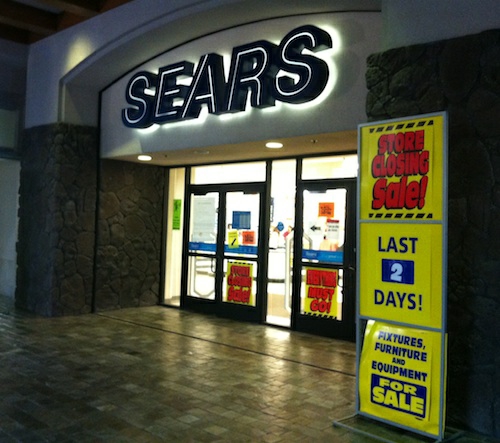 Our local Ithaca, NY, Sears store closed last month-one of more than 200 in 2014. Sears Holdings Co. CEO Eddie Lampert explained the decision in a post on the company's website. Part of his message is about keeping underperforming stores open as long as possible:
Our local Ithaca, NY, Sears store closed last month-one of more than 200 in 2014. Sears Holdings Co. CEO Eddie Lampert explained the decision in a post on the company's website. Part of his message is about keeping underperforming stores open as long as possible:
"I am proud of the work associates contribute to serve our members in all of our stores and believe that the decision to keep some of our worst performing stores open in the past, despite their low or negative levels of profit, was the right one because we kept people employed and served our members. We have experimented with different formats, different levels of investment and different processes to bring about a better result. Given changing circumstances, both in the retail industry and in our company, we can no longer afford, nor justify keeping these stores open."
In a second blog post a day earlier, Lampert writes, "Is something a 'failure' if other successes come from it?" He responds to a Crain's Chicago Business article that criticized Sears for being too merchandise-driven when it needs to evolve as a market-driven company.
"Success takes both hard work and a willingness to keep what works and adjust what doesn't based upon what our members want. This is what we and our competitors needed to do back in 1988. It's what so many people across our company are doing today, and it's how we are going to bring Sears and Kmart forward into tomorrow."
If nothing else, Lambert's determination shows in the number of his blog posts. Between 2005 and 2013, he wrote no more than three posts per year. In 2014, he's blogging between two and nine times a month.
Discussion Starters:
- How does Lambert use principles of persuasion discussed in Chapter 7 in his "Moving Forward" post about the store closings?
- Compare Lambert's early posts on the blog (2005 and 2006) with his most recent. What differences do you notice, and how can you account for them?
Employees Can Use Company Email to Organize
 Employees, now you can use your company's email to organize with other employees. The National Labor Relations Board (NLRB) has reversed a decision from 2007. As long as the organizing activity is done on their own time or doesn't involve stopping their work, employees may send email to other employees in an effort to establish a union.
Employees, now you can use your company's email to organize with other employees. The National Labor Relations Board (NLRB) has reversed a decision from 2007. As long as the organizing activity is done on their own time or doesn't involve stopping their work, employees may send email to other employees in an effort to establish a union.
The NLRB explained its turnaround:
"By focusing too much on employers' property rights and too little on the importance of email as a means of workplace communication, the Board (in its earlier ruling) failed to adequately protect employees' rights...and abdicated its responsibility ‘to adapt the Act to the changing patterns of industrial life.'"
Although won by a narrow 3-2 margin, the ruling is considered a "great victory" for employees. Marshall B. Babson, counsel at Seyfarth Shaw LLP, questions the decision, saying, according to a Bloomberg report, that "the board's decision raises a 'very serious issue' about a 'compelled speech' violation of the First Amendment. The government should not be able to tell an employer that it has to allow use of its own systems to facilitate expression of a point of view that it does not share."
Part of the decisions seems to hinge on employers' permitting email use for non-work communication. The board also said that email systems "are different in material respects from the types of workplace equipment the Board has considered in the past."
Discussion Starters:
- What's your view of the NLRB's decision? Consider both the prevalence of email and employers' interests.
- If you were the human resources director at a company, what, if anything, would you communicate about this ruling?
Social Media Insults
A New York Times blog post tries to make sense of insults on social media. The writer describes one situation:
"In one, Im-ani Gandy, a lawyer and legal analyst, describes the harassment she receives on Twitter this way: 'The hate-filled invective spewed by the dregs of society awaits you in your notifications. It's personal and there's no avoiding it.' In her five years on Twitter, she says, she has been called the N-word so many times that 'it barely registers as an insult anymore.'"
Apparently, few of us are safe. Forty-percent of people have experienced some type of harassment on social media.
 In a blog post, Twitter announced new ways to manage online abuse. The site is making reporting harassment easier and has implemented a blocking mechanism. The company also acknowledges there's more work to be done:
In a blog post, Twitter announced new ways to manage online abuse. The site is making reporting harassment easier and has implemented a blocking mechanism. The company also acknowledges there's more work to be done:
"We are nowhere near being done making changes in this area. In the coming months, you can expect to see additional user controls, further improvements to reporting and new enforcement procedures for abusive accounts. We'll continue to work hard on these changes in order to improve the experience of people who encounter abuse on Twitter."
Sites such as Yik Yak aren't helping. With the tagline, "Share your thoughts and keep your privacy on Yik Yak," the site allows people to post anonymous comments about people around them.
But a group of Colgate professors flooded the site with positive comments. Tired of reading insults that are dividing the campus, Geoff Holm, an associate professor of biology, said, "If we have opinions, it's important to own them." Rather than posting anonymously, professors sign their names. I must admit that some of the Yik Yak posts are quite clever. But the insulting ones are not funny at all.
Discussion Starters:
- Do you post anonymously online? Why? How, if at all, does the anonymity affect your posts?
- What's your view of the Colgate professors' approach to Yik Yak? Will it make a difference?
Social Media Infographic
The Evolution of Social Media infographic by Digital Marketing Agency MediaVision is getting some play. As a good infographic should, this one tells a story by combining text and graphics at-a-glance.
This reminds me of one of my favorite (early) infographics of all time, The Conversation Prism. Brian Solis has been updating this summary of sites and tools since 2008. Now in its four rendition, the infographic puts "You" in the middle of social media.
- Which principles for creating infographics discussed in Chapter 9 do these two graphics follow?
- Compare the first version of the Conversation Prism to the current one. What has changed?
- What, if anything, surprises you about the Evolution infographic choices?
McDonald's Latest Food Video
The latest McDonald's video describing how its food is made features Chicken McNuggets. Part of the series, "Our Food, Your Questions," the video shows the ingredients and process of making this popular McDonald's item.
McDonald's sales continue to falter. Although better than some analysts' projections last month, the company has been losing revenue. This campaign is an attempt at transparency-to address customers' long-standing questions openly and directly. So far, the results are questionable.
Discussion Starters:
- What's your view of the latest video? What is effective and what is ineffective in conveying McDonald's message?
- How, if at all, does the video change your view of Chicken McNuggets?
- What else could the company do to improve the image of its food?
Walgreens Pulls Swastika Wrapping Paper
Would you like swastikas with your Hanukkah wrapping paper? Traditionally, blue-colored wrapping paper would be used for Hanukkah gifts, but paper at Walgreens, part of a Hannukah display, includes a pattern that few Jews would appreciate.
A Walgreens representative said, "We are in the process of removing the product from our stores," but the company made no other comment about the design. A Hallmark statement acknowledged that the paper "has an unintentional offensive background image" and a representative said, "We sincerely apologize for this oversight and for (the) unintended offense."
Discussion Starters:
- How does a mistake like this happen?
- Hallmark says the image is "unintentional" and the offense is "unintended." Do you buy it?
- What else, if anything, should Walgreens and Hallmark do?


